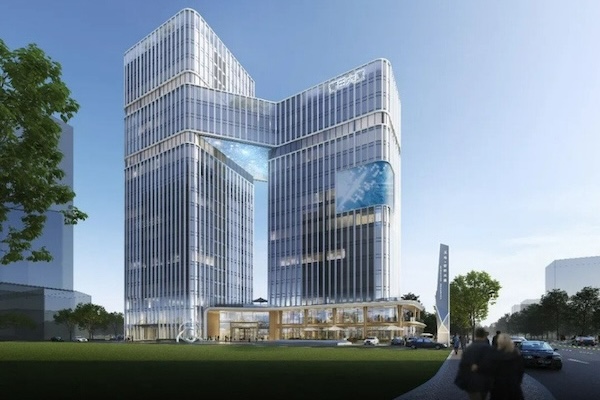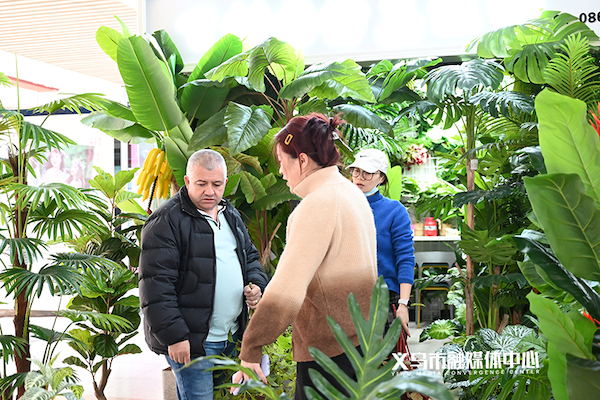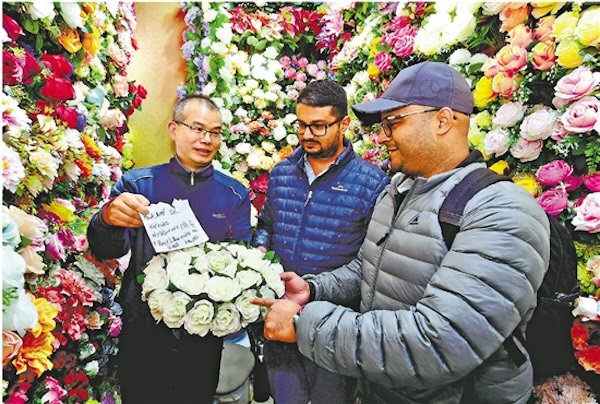New antibody drug to boost COVID fight
Editor's Note: The eyes of the world are turning to China. In this ongoing series How-to China, we tell stories about how Chinese approaches promote understanding, solve problems and improve the lives of people around the globe.
Nearly two years after the COVID-19 outbreak, China has granted emergency approval for its first antibody combination therapy for COVID-19 treatment, adding a tool to the world's arsenal against the disease.
The monoclonal neutralizing antibody cocktail is jointly developed by Brii Biosciences, Tsinghua University and the Third People's Hospital of Shenzhen.
Compared with other similar drugs available around the world, what's the advantage of this therapy? How does it work? Is it effective against the Omicron and other variants? Can it be used for prevention? Finally, when will it be ready for clinical use?
In an exclusive interview with China Daily, Zhang Linqi, leader of the research team and director of the Global Health and Infectious Diseases Research Center and Comprehensive AIDS Research Center at the Tsinghua University's School of Medicine, shared with us the story behind the latest breakthrough in the fight against COVID-19.
The following are excerpts from the interview:

Zhang Linqi, leading scientist in developing China's first approved COVID-19 antibody drug, demonstrates a model of protein on the surface of the novel coronavirus. [Photo provided to chinadaily.com.cn]
Q: What is the difference between China's first approved COVID-19 antibody drug and similar drugs in other countries?
Zhang: During the research and development of our antibody therapy, we started by inhibiting multi-targets of the virus because we knew from the beginning that the virus had the potential to mutate.
When we selected the antibodies, we picked two from a total of 206 candidates. Each antibody is unique. Selecting outstanding antibodies from hundreds, even thousands of antibodies, is just like selecting the best talents from a crowd of people.
The selection standard was quite high. First, the antibodies needed to be able to identify the different locations where the virus unlocks human cells. Then, the two selected types of antibodies needed to be complementary in preventing the virus from replicating. Compared with similar antibody therapies developed in foreign countries, our drug is more active, better at resisting virus mutations and can maintain activity in human bodies longer.
Q: Can you explain how this antibody therapy works?
Zhang: When a virus infects a cell, it relies on an important type of protein: the spike proteins on its surface. The spike protein serves as a key to unlock a cell. If a virus cannot enter a cell, it will be eliminated immediately.
The job of our antibodies is to block the virus from entering cells. So its target is very precise. In addition, thanks to the coordination between the two antibodies, it is highly efficient and durable in inhibiting the virus and covers a broad spectrum of mutations.

A 3D graphic representation of the novel coronavirus. [Provided to chinadaily.com.cn]
Q: How will the new therapy help the fight against COVID-19?
Zhang: The antibody therapy is mainly used to treat patients with mild or moderate symptoms and those at a high risk of developing severe symptoms, including patients with severe underlying health problems such as diabetes and cardiovascular diseases. It can reduce the rate of hospitalization and death by 80 percent.
The antibody drug not only prevents the virus from penetrating cells, but also boosts our immunity because the antibody itself is part of our immune system.
The antibody drug is immediately effective once administered intravenously. It can stay alive in the human body for nine to 12 months. So it has great potential in preventing infection.
It is especially useful for high-risk groups, such as frontline medical workers and people not suitable for vaccination due to weak immune systems, liver and kidney problems and underlying health problems.

A member of the research team is seen at work. [Photo provided to chinadaily.com.cn]
Q: Will we gain more market approvals beyond China to make greater contribution to the global battle against COVID-19?
Zhang: We're not only aiming at serving Chinese people but also people around the world. It is an international cooperation project.
After entering the phase one clinical trial in China, we conducted phase two and phase three clinical trials in areas with high COVID-19 prevalence as the epidemic had been basically brought under control in China.
We participated in a global trial program sponsored by the US National Institutes of Health. And we earned a high score among global competitors.
So we were able to conduct phase two and phase three clinical trials in 111 clinical trial sites in six countries.
Trial data found the therapy could reduce the rate of hospitalization and death of high-risk patients by about 80 percent.
On Dec 8, we were granted emergency approval by China's National Medical Products Administration.
At the same time, we have contacted the US Food and Drug Administration. We expect to gain US' FDA approval in the near future.
Many countries have already contacted us and expressed their wishes to use our therapy.

Zhang Linqi (R), leading scientist in developing China's first approved COVID-19 antibody drug, talks with China Daily reporter Du Juan in Beijing on Dec 20, 2021. [Photo by Yan Maoqiang/chinadaily.com.cn]
Q: When will the new antibody drug hit the market?
We are pushing for the market launch as early as possible. But several procedures are needed.
A treatment guideline must be formulated. The conditions for storage, shipping and production must also be met. This process may take a few days or a few weeks.
It takes about two to three months to finish production after we receive an order. So we are also pushing for a mechanism like pre-purchase or reserve.

The research team led by Zhang Linqi. [Photo provided to chinadaily.com.cn]
Q: Do you regard this as a shining moment in your professional or academic career? How can the COVID-19 breakthrough drug help your AIDS research?
Zhang: In less than two years, we finished a job that would otherwise take at least 10 years.
This is a big test for us. Not only in the sense of technology but also a test of our will, our ability to manage all resources in emergency, and our teamwork. The challenge is unprecedented.
This experience will be a huge boost to our research in AIDS.
There has been great achievement in AIDS research. The cocktail therapy has greatly improved the quality of life for AIDS patients. But we still need to find a cure or vaccine for the disease. It will be a tough job and we are still working on it.
About the interviewee

Zhang Linqi [Photo provided to chinadaily.com.cn]
Zhang Linqi is a professor and the director of the Comprehensive AIDS Research Center at Tsinghua University's School of Medicine.
He graduated from Beijing Normal University in 1985 with a bachelor's degree and earned a doctoral degree in 1992 from the University of Edinburgh. He joined Tsinghua University in 2007 after working at Rockefeller University for nine years.
Over the past three decades, his primary research interest revolves around the origin and spread of HIV pathogens, with a focus on the course of disease and treatment. He recently expanded his research into emerging and re-emerging human viral pathogens such as Middle East respiratory syndrome coronavirus (MERS-CoV), Ebola and Zika virus, as well as highly pathogenic avian influenza virus (HPAI) and COVID-19.
Reporter: Du Juan
Camera: Ma Chi and Yan Maoqiang
Video editor: Ma Chi
Subtitle: Ma Chi, Zhang Wenfang and Yan Maoqiang
Supervisors: Shan Juan and Wang Jianfen

 Yiwu and Qingtian: Global supermarket alliance spurs economic growth
Yiwu and Qingtian: Global supermarket alliance spurs economic growth Artificial flowers: Yiwu's evergreen business
Artificial flowers: Yiwu's evergreen business Yiwu Intl Trade Market reopens after Spring Festival holiday
Yiwu Intl Trade Market reopens after Spring Festival holiday